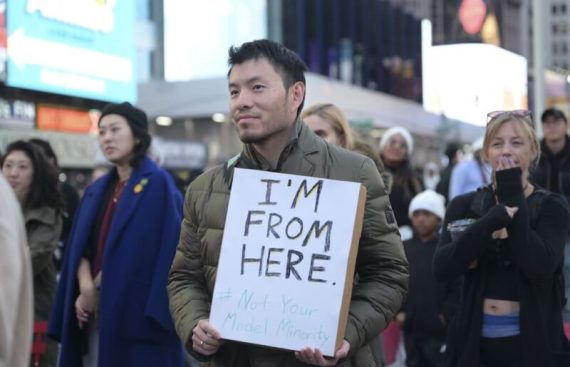I
n a troubling revelation from a recent AAPI Data and The Associated Press-NORC Center for Public Affairs Research poll, approximately one in three Asian Americans and Pacific Islanders have faced racial abuse within the past year. This statistic underscores the continued presence of racial discrimination and the urgent need for impactful legislation and community support.
Despite legislative efforts and increased public advocacy following a rise in anti-Asian sentiment during the pandemic, the challenges of racial discrimination persist for Asian American and Pacific Islander (AAPI) communities. The poll indicates that roughly 33% of AAPI individuals have encountered racial or ethnic abuse, including verbal harassment, slurs, and threats, both physical and online.
The survey, involving 1,178 U.S. adults who identify as Asian, Native Hawaiian, or Pacific Islanders, was conducted from October 10-20, 2023. The findings, which carry a margin of error of plus or minus 4.2 percentage points, reveal an unsettling landscape of racial hostility despite increased awareness and anti-racism measures.
Enduring effects of hate crimes
The poll further suggests that 15% of AAPI respondents believe they have been victims of a hate crime, while over half perceive racism as a severe issue in the United States. This sentiment is echoed in personal experiences shared by individuals like Jennifer Lee, a Filipino American in San Diego, who recounts instances of discrimination and racial slurs, including during a recent job interview.
The report’s timing is significant as it follows the FBI’s announcement of an overall 7% increase in hate crimes, contrasting with a reported 33% decrease in anti-Asian incidents in 2022 from the prior year. Advocacy groups like Stop AAPI Hate emphasize the likelihood of underreporting within the community, highlighting the persistent fear and stigma associated with hate crimes.
The survey’s political implications are notable, with President Joe Biden receiving mixed reviews from the AAPI community, showing a 52% favorability rating. This stands in contrast to former President Donald Trump, who garners an unfavorable opinion from 70% of the respondents. The data suggests that AAPI voters, traditionally leaning Democratic, may impact upcoming elections, underscoring the need for political parties to engage more deeply with these communities.
Concerns about the potential re-election of Trump
Individuals like Thomas Lee from Long Island, New York, express concerns about the potential re-election of Trump, fearing an escalation in discrimination and hate crimes. The sentiment reflects a broader apprehension among AAPI individuals about the current political climate and its impact on racial tensions.
The survey shines a spotlight on the diverse experiences within the AAPI community, from the fear of hate crimes to the everyday challenges of discrimination. Advocates call for greater awareness beyond high-profile hate crimes, pointing to the frequent occurrences of verbal harassment and civil rights violations that affect daily life.
As the nation continues to grapple with racial issues, the AAPI community’s experiences serve as a stark reminder of the work that remains. The call for effective action and solidarity has never been more pressing, urging society and its leaders to foster a more inclusive and safer environment for all.
The AAPI Data and AP-NORC survey not only provides insights into the present challenges faced by Asian Americans and Pacific Islanders but also acts as a catalyst for future change. It is a call to action for community leaders, policymakers, and every individual to stand against racism and build a more equitable society.
As the United States looks forward, the need for continued vigilance, education, and policy reform is clear. The AAPI community’s experiences and voices must be integral to the national dialogue on race, ensuring that the ideals of diversity and inclusion are not merely aspirational but realized in everyday practice.
The persistence of racial abuse against Asian Americans and Pacific Islanders, as revealed by the AAPI Data and AP-NORC poll, is a stark reminder of the long road ahead in the fight against racism. While progress has been made, there is a vital need for sustained effort and collective action to eradicate hate and ensure equality for all. The resilience and advocacy of the AAPI community continue to be a beacon of hope and a driving force for change.
Recommended





